
The University of Warsaw, an academic community of approximately 47,600 students, 3,000 post-diploma learners, 7,300 employees, including 3,750 researchers and teachers, is the largest higher education institution and the best research centre in Poland. Since its foundation in 1816, it has played a major role in the intellectual, political, economic, social and cultural life in Poland. The leading concepts of the University activity are the unity of teaching and research, and the harmonious development of all the branches of knowledge represented in its curriculum.
The University is a member of the 4EU European University Alliance and belongs to several international associations and networks, such as EUA, EUF, UNICA, EMT, HUMANE, NOHA, ASAIHL. It is a holder of the Erasmus Charter for Higher Education and the HR Excellence in Research title awarded by the European Commission.
The University of Warsaw is the most active and efficient university in Poland in terms of participation in the EU programmes, such as Erasmus Mundus, Horizon 2020, and the European Research Council. The University was distinguished for its participation in Erasmus+ Programme by the European Commission. In 2016-2018, there were about 2,500 outgoing and incoming students and staff within KA103/ Learning Mobility of Individuals project, 7 Strategic Partnerships projects and 1 Capacity Building project.
The UW Center for Foreign Language Teaching has 60 years’ experience in foreign language teaching. The Centre creates excellent conditions for teaching and learning foreign languages for academic and professional purposes, thus promoting plurilingualism, multiculturalism and preparing graduates for future employment, job mobility, life-long learning and continuous self-education. Language teachers are trained on a regular basis and raise their qualifications by participating in various Erasmus+ exchange programmes, scientific and methodological conferences. The experience gained during the successful coordination of FAB (Formative Assessment Benchmarking) Erasmus + Strategic Partnership Project (2015-2017) will definitely contribute to ensuring the effective coordination of the MiLLaT Project.
Warsaw University Project Team Members
Andrzej Dąbrowski, PhD – lecturer and researcher of English and German as foreign languages, Director of the Centre for Foreign Language Teaching at the University of Warsaw. He is a graduate of Applied Linguistics at Adam Mickiewicz University in Poznań and has received his PhD from the University of Warsaw. He has several years of experience in teaching Legal English to law undergraduates and legal practitioners from different professional backgrounds via traditional and blended learning. His didactic and research interests include the use of films in teaching English to adults and CLIL.
__________________
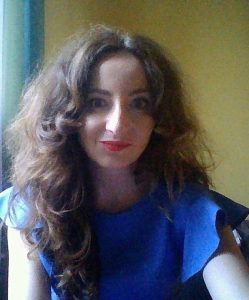
Małgorzata Świerk, PhD is the project manager on behalf of the University of Warsaw. She is an assistant professor at the Center for Foreign Language Teaching. She is the author of papers on e-learning. She has been doing her research on the quality of online and blended language courses at higher education institutions. She is the author of blended and online courses for students and teachers; she is the co-author of E-learning materials for full M.A. studies in ‘IT science,’ a project financed by the European Social Funds. She was awarded the European Language Label in 2009.
__________________
Urszula Wilk is a lecturer at the Centre for Foreign Language Teaching at the University of Warsaw. She teaches Spanish as a foreign language at the levels A1-B2. Her didactic interests include Spanish language and culture, cultural differences and intercultural communication. In the MiLLaT project, she is a member of the Materials Development Team.
__________________

Katarzyna Kopij, MA, graduate of the University of Warsaw, the Faculty of Applied Linguistics, MPhil. in Applied Linguistics, Trinity College in Dublin. Senior lecturer at the Centre for Foreign Language Teaching, the University of Warsaw. She works at the Faculty of Economic Sciences, specialising in English for finance and economics, business English and EAP. In the MiLLaT project, she cooperates with the team responsible for IOs for synchronic language teaching. She is also a translator and interpreter, cooperating with academics, financial institutions and NGOs.
__________________
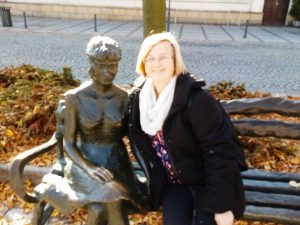
Małgorzata Maras, MA has graduated from the Departments of Polish and English Philology and straight after graduation started to work as an English language lecturer in the Centre for Foreign Language Teaching, University of Warsaw. She has been so much involved in teaching students of different faculties that she has hardly noticed that ten … twenty…. and even more years have passed. She has been conducting general English and English for specific purposes and CLIL courses, but her main interest remains teaching through drama and literature.
__________________
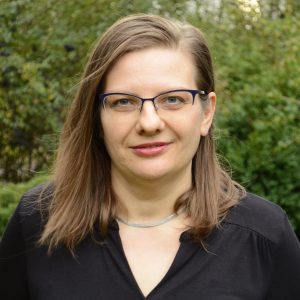
Sylwia Kossakowska-Pisarek, PhD is an assistant professor at the Centre for Foreign Language Teaching, the University of Warsaw, where she teaches Legal, Academic and Business English courses. Her interests include identity, LSP, life-long learning, intercultural communication, e-learning, positive psychology. She is an author of blended-learning and e-learning courses and some peer-reviewed articles in the area of intercultural communication, e-learning and teaching Language for Specific Purposes. She is Research Coordinator for the Project.
__________________
Elżbieta Grzyb, PhD is an assistant professor at the Centre for Foreign Language Teaching, University of Warsaw, where she teaches General English, drama and Polish culture courses. She is an active participant of conferences and events promoting Polish literature abroad. She is an author of several articles devoted to mediation, especially in the area of literary translation. In the project, she works in a team responsible for the project’s newsletter and website.
__________________
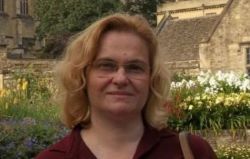
Anna Łętowska-Mickiewicz, MA, Graduate of Warsaw University, Department of English Studies. Postgraduate course at Fulbright Summer Institute, Western Michigan University, USA. Expert of Distance Learning recognized by the Certification Board of the Association of Academic E-learning in Poland (AAE). Senior lecturer at the Centre for Foreign Language Teaching, University of Warsaw, where she teaches both traditional and e-learning English courses. Co-author and author of e-learning courses offered to students and university academic staff. In the Project, she is a member of the E-learning Course Team.
__________________
Ekaterina Bunina-Breś, PhD, Graduate of Volgograd State University, Department of English Philology and Intercultural Communication, Russia. A postgraduate course at the Centre for Translation Studies, Copenhagen University, Denmark. Ekaterina is a senior lecturer at the Centre for Foreign Language Teaching, University of Warsaw, where she teaches General English and Business English courses. She is the author of a blended-learning Business English course for the students of the Management Department. Her main interests are multilingualism, cross-linguistic influence in third-language acquisition and intercultural communication. In the MiLLaT project, she is the leader of the Peer Observation Team.
__________________
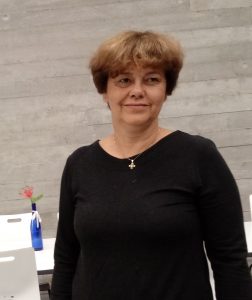
Marzena Zykubek, MA, graduate of the University of Warsaw, Department of English Studies. Senior lecturer at the Centre for Foreign Language Teaching, the University of Warsaw. She specializes in running Legal and Business English courses as well as e-learning courses in general English. Her interests include intercultural communication, cultural differences and psychological aspects of effective communication. She is also a translator and interpreter, working for courts, prosecutors and legal offices. She is the author of the course designed for candidates for sworn translators of English. In MiLLaT project she is a member of the Materials Development Team and she is also responsible for the dissemination of the project outcomes.
Bartosz Jurczak, MA, graduate of the University of Warsaw, Department of English Studies. Senior lecturer at the Centre for Foreign Language Teaching, University of Warsaw, where he has been teaching English for General Purposes, English for Academic Purposes and English for Business since 1995. He has participated in international and national educational projects, e.g. Language Auditing Tools for Europe, Portfolio of Intercultural Communication, Thematic Network Project III, EQUAL, Formative Assessment Benchmarking, and Mediation in Language Learning and Teaching. Sworn translator/interpreter with experience in subtitling.
The University of Helsinki, an international scientific community of 40,000 students and researchers, is the oldest and largest institution of academic education in Finland. Through the power of science, the University has contributed to society, education and welfare since 1640. The University of Helsinki is the only Finnish university to consistently rank in the top 100 of international university rankings and is also one of the best multidisciplinary research universities in the world. The University of Helsinki seeks solutions for global challenges and creates new ways of thinking for the best of humanity.
The University of Helsinki employs approximately 7,600 people, 60% of whom are teachers and researchers. The high-quality research carried out by the university creates new knowledge for the education of diverse specialists in various fields, and for utilisation in social decision-making and the business sector. In 2017, researchers at the University of Helsinki produced 11,446 publications. Half of the peer-reviewed academic publications are produced as a result of international cooperation.
The University of Helsinki belongs to several international networks. It is the only Finnish university to be a member of the League of European Research Universities (LERU), an association of 23 leading European universities promoting the conditions and opportunities for basic research in Europe. Since the beginning of the current Erasmus+ period, the University of Helsinki has participated in over forty Erasmus+ Key Action 2 projects.
The Language Centre at the University of Helsinki arranges language courses fulfilling the degree requirements of students in the eleven faculties of the University, as well as courses to meet other language needs of the University community. The Language Centre consists of eight language units, in addition to the Support for Teaching and Learning Unit and the Language Services unit. The Language Centre has a staff of approximately 150, including 65 full-time teachers and 21 non-academic members of staff. The English Unit has over twenty full-time teachers, who specialise in teaching academic and professional communication skills. The Unit has considerable experience of using mediation-related activities in teaching, which will benefit the project.
The University of Helsinki Project Team Members
Mika Aromäki
Mika Aromäki is a University Instructor in English at the University of Helsinki Language Centre and a member of the MiLLaT project team in Helsinki. He has several years of experience in teaching academic and professional English to students of many different fields. His approach to teaching is student-centered and he is in constant search of new effective methods of facilitating student motivation.
__________________
Gráinne Hiney
Gráinne Hiney, BA (mod) Science, MA Geography, is a language instructor in English at the University of Helsinki. She has taught English for many years at different levels, including corporate, school and university. Her Language Centre teaching is focused on academic and professional communication, legal translation, oral argumentation, academic writing and presenting, as well as autonomous learning. She also has experience in language revision. Her current interests include constructive alignment in course planning and advising in language learning.
__________________
Tuula Lehtonen
Tuula Lehtonen, MA, EdD, is a senior lecturer at the Language Centre, University of Helsinki. In addition to teaching English online to Bachelor’s and Master’s students in Law, she is engaged in teaching and supporting academic writing in English as well as teaching students of Veterinary Medicine. She is currently the co-head of the English Unit, a task she shares with Roy Siddall. She has published mainly in the fields of vocabulary learning, English-medium instruction and Law students’ learning of English at work. She has been awarded the title of docent and is a selected member of the Teachers’ Academy, which is a network of distinguished university teachers at the University of Helsinki.
__________________
Kari Pitkänen
Dr. Kari K. Pitkänen (PhD in General Linguistics; MA in General Linguistics and English Philology) is a University Lecturer in English at the Language Centre, University of Helsinki. Currently teaching faculty-specific English courses for Medicine & Dentistry, Bio/Environmental Sciences, Veterinary Medicine, Agriculture & Forestry, occasionally also Science; and courses in Academic Writing & Advanced Presentation Skills to all the levels from the Bachelor’s to the Doctoral degrees. In the past, Kari has also taught English and academic writing to the engineering students at the Tampere University of Technology and several courses in Linguistics as a University Lecturer in General Linguistics at the University of Helsinki. In addition, Kari has done some research mainly in linguistics (especially text and discourse), computational linguistics and language technology – and more recently on language teaching.
__________________
Roy Siddall

Roy Siddall, BSc, PhD, is University Lecturer in English at the University of Helsinki Language Centre a co-head of the English Unit, together with Tuula Lehtonen. He has taught Academic and Professional Communication in English courses to students in medical, veterinary and science-related faculties, in addition to academic writing and presentation skills to Master’s and doctoral students. Research interests have included the development of language support for students in English-medium Master’s programmes at the University of Helsinki.
__________________
Kirby Vincent
Kirby Vincent, MA TEFL, is a University Lecturer in English at the University of Helsinki Language Centre where he teaches in the following faculties: Law, Educational Sciences, Humanities and Medicine. Additionally, he teaches on an academic writing course. The courses he has are taught either in-class, blended, online and also autonomous. Before joining the University of Helsinki, he taught Business English for about 10 years. Research interests include intercultural communication and study skills.
__________________
Nina Wallden
Nina Wallden, MA (English Philology), is a University Instructor in English at the University of Helsinki Language Centre where she teaches traditional and blended faculty-specific Academic and Professional Communication in English courses in various faculties, such as Science, Social Sciences and Arts. Her experience includes teaching English to students in various fields of study in higher education institutions. The practical teaching experience has contributed to her interest in developing teaching and learning through pursuing further studies in education and qualification in special needs education. Her didactic and research interests are related to language learning in higher education, in areas such as professional and academic English, blended learning and student engagement.
__________________
Cintia Widmann Etchemaite
Cintia S. Widmann Etchemaite has a PhD and an MA in Linguistics from the University of South Carolina, and an MSc in Clinical Linguistics from the Erasmus Mundus European Masters in Clinical Linguistics, jointly awarded by the University of Groningen, the University of Potsdam and the University of Eastern Finland. Her BA degrees in teaching English as a Foreign Language were awarded by the Universidad Nacional del Comahue. Her graduate education in the US and in Europe was made possible with the financial aid of a Fulbright grant and an Erasmus Mundus scholarship. She has taught children, teenagers, and adults.
Vytautas Magnus University (VMU) is a public enterprise engaged in providing education at the university level, conducting research, and developing applied research and arts activities. It was established in 1922 (re-established in 1989). Vytautas Magnus University, with about 7,000 Bachelor and 2,000 Master degree students, is one of the most modern academic institutions in Lithuania, playing a leading role not only in Lithuanian but also in the entire Baltic and European intellectual and cultural sphere.
Apart from 26 BA and MA full-time degree programmes in English, VMU offers over 100 degree programmes, as well as integrated studies of law and postgraduate and doctoral programmes. The university offers doctoral studies in 18 diverse fields of Humanities, Social, Physical and Biomedical Sciences. VMU is cooperating with 370 universities around the world and is a member of the most important European associations and international organisations of higher education and research. VMU has over 120 bilateral collaborative agreements with universities in 40 countries in Europe, Asia, South and North America.
The Institute of Foreign Languages at Vytautas Magnus University cherishes and fosters the spirit of multilingualism and multiculturalism by offering around 30 languages and annually receiving over 3,000 students from the university and the public. It is a prevailing attitude at VMU that good competences in several foreign languages serve as an indispensable part of university education. Consequently, the students of VMU enrich their education with the multilingual competence – a unique, individually formed constellation of two, three, four or more languages, ultimately gaining a competitive advantage in the global labour market.
Vytautas Magnus University Project Team Members
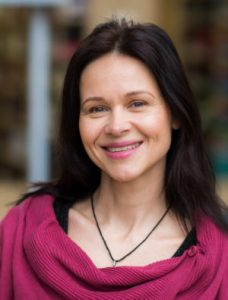
Vilma Bijeikienė, PhD, associate professor, Director of the Institute of Foreign Languages (IFL) at Vytautas Magnus University (VMU) and Chair of the VMU Senate. Her teaching and research interests include English for Specific and Academic Purposes such as Legal English, English for Politics, English for Diplomats, Content and Language Integrated Learning (CLIL), plurilingual pedagogy, linguistically sensitive teaching, language policy and plurilingual competence development as well as sociolinguistics and pragmatics in general. She has participated in European projects related to plurilingualism, interculturalism and internationalisation as well as designed and delivered courses for in-service teacher education. In the years 2016 and 2018 she taught on extensive academic exchange visits at universities in Kazakhstan and China. She is a member of the scientific committee of the biennial international scientific conference of Sustainable Multilingualism and an executive editor of the biannual international scientific Journal of Sustainable Multilingualism, recently included in SCOPUS (www.uki.vdu.lt/sm; https://content.sciendo.com/view/journals/sm/sm-verview.xml;). In Millat project she is a member of the quality assurance committee.
__________________
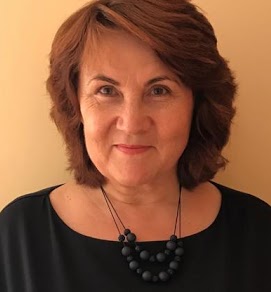
Nemira Mačianskienė, PhD is a professor at the Institute of Foreign Languages (IFL) at Vytautas Magnus University. She teaches Multilingualism in Europe, Cross-Cultural Communication and Teaching English as a Foreign Language Methodology courses at the Faculty of Humanities and English C1: Intercultural Communication at the IFL. Her main didactic and research interests include language policy, plurilingual competence development and intercultural communication. She was the founder and the director of the IFL from 2001 to 2014. She is the editor-in-chief of the international scientific journal Sustainable Multilingualism (www.uki.vdu.lt/sm; https://content.sciendo.com/view/journals/sm/sm-verview.xml; included in SCOPUS) and the chair of biennial international scientific conference Sustainable Multilingualism. In Millat project she is a member of Newsletter Team.
__________________
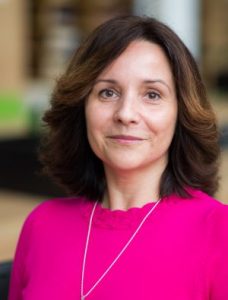
Almantė Meškauskienė, lecturer of English, Deputy Director of the Institute of Foreign Languages at Vytautas Magnus University, Kaunas. She is the author of blended-learning Business English, ICT and Professional language courses. As Deputy Director responsible for co-operation with schools, delivering public lectures, discussions and seminars, coordinating the activities of students who perform study practice at IFL. A member of the Organizing Committee of the International Conference “Sustainable Multilingualism // Darnioji daugiakalbystė”, member of the Certification commission of study subjects’ for distance learning, member of the cluster “Improvement of Multilingualism Competence”, the President of the Language Teachers’ Association of Lithuania. In Millat project she is a member of Task Description and Piloting Form team.
__________________
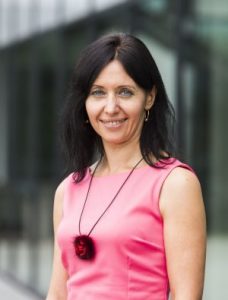
Daiva Pundziuvienė, MA is a lecturer of English and head of EFL department at the Institute of Foreign Languages at Vytautas Magnus University, Lithuania. She has expertise in teaching traditional, blended and online General and Academic English courses. She is a member of the certification commission assessing blended / online study subjects at university. She has participated in projects related to CLIL, multilingual and multicultural learning space, formative assessment. Her research interests include CLIL, TEFL methodology, multilingualism in EU, plurilingual pedagogy, multicultural societies and acculturation, implementation of ICT in language teaching. She has been doing research on the implementation of CLIL in Lithuanian secondary schools and has participated in designing and delivering in-service teacher education courses on CLIL in Lithuania. In Millat project she is the project coordinator on behalf of Vytautas Magnus University.
__________________
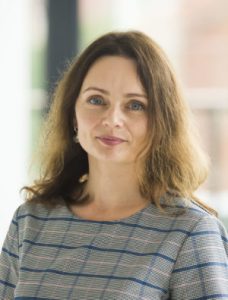
Rima Sabaliauskienė, MA is a lecturer and researcher of Spanish as a foreign language at the Institute of Foreign Languages at Vytautas Magnus University. She teaches Spanish as a foreign language at the levels A1-B1. Her didactic and research interests include cultural differences and intercultural communication, Spanish language and culture, use of innovative technologies in language teaching. Responsibilities in Millat project: Materials Development In Millat project she is a member of Materials Development Team (Mediation in In-Class Language Teaching Guidelines).
__________________
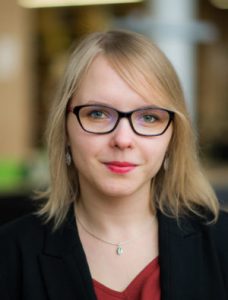
Jurgita Šerniūtė, MA, is MiLLat project administrator at Vytautas Magnus University. She has been a chief assistant at the Institute of Foreign Languages for eight years. She had been responsible for administrating two other EU projects before. At the moment she is enrolled in two EU projects. Jurgita also has an experience of teaching English A1 to adult learners and university students. Her recent teaching experience is Lithuanian A1 for foreigners. She has experience in organizing international conferences and publishing a scientific journal Sustainable Multilingualism.
__________________
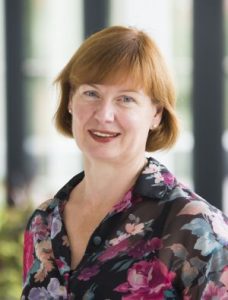
Lina Danute Zutkiene, MA is a lecturer and researcher of English as a foreign language, Head of Testing Centre of the Institute of Foreign Languages at Vytautas Magnus University in Kaunas, Lithuania. She has been teaching General English and English for Specific Purposes since 1994. She is an author/co-author of several articles and research carried on blended teaching/learning, testing methodology, etc. In Millat project she is a member of the Materials Development Team (Online courses).
__________________
Teresė Ringailienė, PhD, is the Director of the Institute of Foreign Languages at Vytautas Magnus University. She teaches general English and Lithuanian as a foreign language. She is the author of the textbook Learn and Speak Lithuanian, aiming at teaching/learning Lithuanian as a foreign language. Her experience includes teaching subjects related to translation, discourse analysis, English phonetics and corpus linguistics. Her research interests include TEFL methodology, intercultural communication, discourse analysis and translation theory and practice. A member of VMU Senate and the chair of the organising committee of the biennial conference Sustainable Multilingualism. In the Millat project, she is a member of the team Mediation in Online Asynchronous Language Teaching – a Guide for E-Teachers.
__________________
Vaida Miseviciute, MA of TESOL and distance education for adults. She is a lecturer of English at the Institute of Foreign Languages at Vytautas Magnus University, Lithuania. She has expertise in teaching traditional, blended and online Academic English courses, bilingual education, and CLIL. She is a member of the certification commission assessing blended / online study subjects at the university. Her research interests include cross cultural communication, critical thinking, ESL/EFL methodologies, student-teacher and teacher-student relationships as well as distance learning education. In Millat project, she is a member of the materials development team, task Description and piloting Form team, and the teacher’s guide for asynchronous teaching team.
Charles University was founded in 1348, which means it is one of the oldest universities in the world. At the same time, it is also renowned as a modern, dynamic, cosmopolitan and prestigious institution of higher education. Remaining the largest and most renowned Czech university, it is also the best-rated one, according to international rankings. There are currently 17 faculties at the University plus 3 institutes, 6 centres of teaching, research, development and other creative activities.
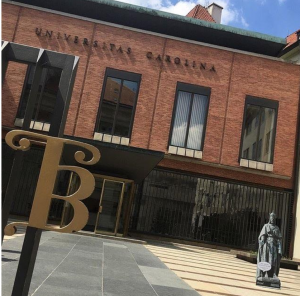
Charles University has over 53,000 students – roughly a sixth of all students in the Czech Republic – enrolled in more than 300 accredited degree programmes, which offer over 642 different courses. The University has over 7,000 students from other countries. Every year nearly 9,000 students complete their studies; Charles University graduates enjoy one of the highest employment rates of any population segment in the Czech Republic.
Charles University collaborates with a broad spectrum of renowned universities from all over the world, and one of its priorities is to enable every one of its students interested in studying abroad to spend some time in another country. The European Commission ranks Charles University among Europe’s leading universities in terms of the number of outgoing and incoming students and teachers within the Erasmus+ programme.

The Faculty of Arts is a leading voice in the Czech humanities. It has more than 7,000 students, nearly 700 professors and lecturers, 46 departments and more than 1,000 study programmes.
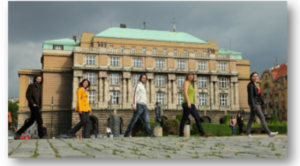
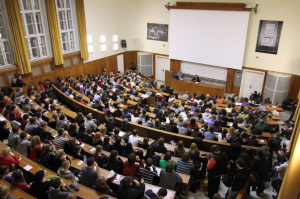
The Faculty of Arts Language Centre comprises 22 full-time teachers, offering ca 160 academic language courses per year for approximately 2,400 students, and awarding ca 1,100 B2 language attestations per year, and since recently also testing academic reading skills. The courses are open (and free) to all the students from all Charles University faculties, doctoral students and, importantly, approximately 150 Erasmus students per year.
Charles University Project Team Members
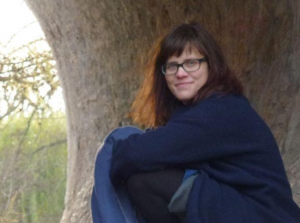
Mgr. Michaela Konárková is the coordinator of the Prague project team. She has been part of the Language Centre of the Faculty of Arts, Charles University for 12 years. She has taught numerous face-to-face, blended and online courses of academic skills for mixed groups of students from different study programmes as well as cultural backgrounds. She specializes in teaching academic writing and reading. Apart from teaching, Michaela also translates novels from English.
__________________
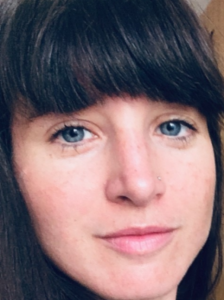
Mgr. Šárka Kadlecová is the head of the English section of the Language Centre, Faculty of Arts, Charles University. She teaches English courses enhancing academic skills in students and specialized courses, one focused on the development of intercultural competences and the other discussing topics from the field of visual arts and visual culture. She has been publishing and leading workshops on multicultural education and intercultural competence. She is currently finishing her PhD in Ethnology.
__________________
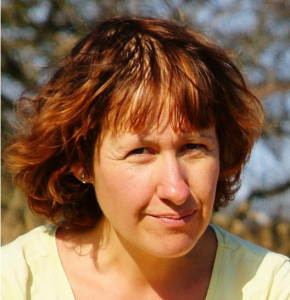
Ladislava Dolanová, PhD is the deputy director of the Language Centre of the Faculty of Arts, Charles University and head of the Russian section. She is a highly experienced lecturer who enjoys applying the methods of critical thinking on teaching Russian. She is interested in intercultural communication, both in theory and in practice and focuses on introducing new media technologies in education.
__________________
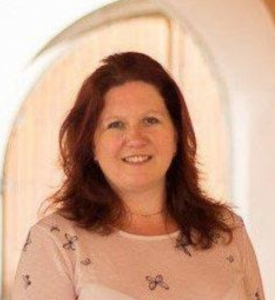
Mgr. Markéta Doubravová is a teacher at the Language Centre of the Faculty of Arts, Charles University, where she focuses on and is interested in e-learning and blended learning. As a teacher, she has got a several-year experience in teaching not only in her homeland but she also taught at an international language school in London for several summers where she gained experience in teaching multi-national classes with students with different backgrounds from all around the world. Currently, she is preparing an e-learning course for students with special needs. She is also a co-author of a phrasebook and a set of CDs for vocabulary learning and practice.
__________________
